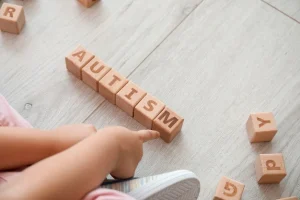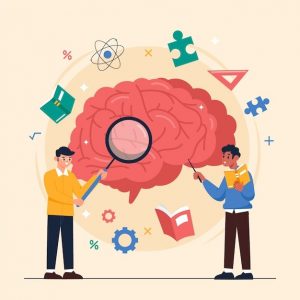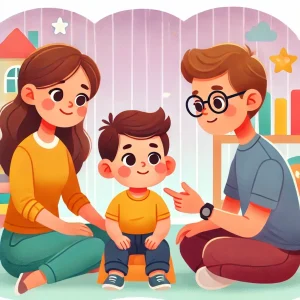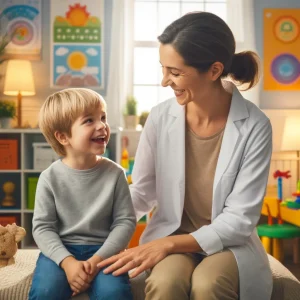Types of Marriage Counseling: A Simple Guide
By Prapoorna M
Last Updated: May 7, 2024
Hello there, and welcome! It’s great to see you taking an interest in improving your marriage. You might be wondering where to start or how to address the issues you’re facing in your relationship. That’s completely normal.
Marriage counseling comes in various forms, each designed to help couples navigate different challenges. It’s okay if you’re unsure which type might suit your needs best – many couples feel the same way when they first consider therapy.
The Gottman Method
If you and your partner are looking to improve the quality of your relationship, the Gottman Method might be the perfect fit for you. Developed by John and Julie Gottman, this method is structured around practical problem-solving skills. It’s especially ideal for long-term couples who want to build trust and intimacy.
The Gottman Method is all about enhancing friendship and building a stronger connection between partners. The approach focuses on improving communication and resolving conflicts in a healthy way, all while nurturing the bond you share with your spouse.
In the Gottman Method, you’ll participate in workshops, complete homework assignments, and engage in practical exercises that are designed to deepen your understanding of each other. This method provides tools and techniques to help you overcome issues and foster a stronger, more intimate relationship.
For couples who want to take proactive steps toward improving their marriage, the Gottman Method offers a well-rounded, scientifically-backed approach that encourages love and trust to flourish.
Emotion-Focused Therapy (EFT)
Emotion-Focused Therapy (EFT) is a great option for couples who want to explore their emotions and strengthen their attachment to each other. This type of therapy focuses on emotional needs and attachment styles, which makes it particularly useful for couples dealing with trust issues, emotional injuries, or betrayals.
In EFT, couples are encouraged to express their feelings openly and honestly. The therapist helps guide you and your partner through your emotions, helping you understand and articulate what you’re feeling. This approach is highly effective for couples who want to improve communication and rebuild bonds.
EFT also helps couples develop a deeper understanding of each other’s needs and perspectives, which can lead to more empathy and compassion in the relationship. It’s especially beneficial for couples who have experienced significant emotional distress or who want to reconnect on a deeper level.
Cognitive Behavioral Therapy (CBT)
Are you and your partner struggling with negative thought patterns that affect your relationship? Cognitive Behavioral Therapy (CBT) might be the solution you’re looking for. Originally designed to treat mental health issues, CBT is now a popular approach in couples therapy as well.
CBT focuses on identifying and changing unhelpful interpretations of a partner’s actions. The therapy helps couples understand how their thoughts influence their behaviors and feelings and then works to reframe these thoughts to create healthier patterns.
In CBT, the therapist helps you and your partner recognize distorted thinking and replace it with more positive and constructive thoughts. This process can help improve communication, reduce conflict, and build a stronger, more positive relationship.
CBT is effective for couples dealing with various issues, including communication problems, jealousy, or trust issues. By helping you and your partner understand and change the thoughts that drive your behaviors, CBT fosters healthier relationships and improved communication.
Also Read: REBUILDING TRUST IN RELATIONSHIPS
Solution-Focused Therapy
Solution-Focused Therapy is a great choice if you and your partner have specific issues that you want to address in your marriage. This type of therapy is all about focusing on a desired outcome and building a structured plan to achieve it.
In Solution-Focused Therapy, the therapist works with you to identify the issues you want to solve and then helps you develop actionable steps to achieve your goals. This approach is particularly helpful for couples who want to tackle short-term goals and move forward in their relationship.
Unlike other types of therapy that focus on the root causes of issues, Solution-Focused Therapy is forward-looking and goal-oriented. It’s ideal for couples who have a clear idea of what they want to change or achieve in their relationship.
Know more: 10 Powerful Couples Therapy Tips to Rekindle Your Love
Imago Relationship Therapy
Imago Relationship Therapy offers a unique approach to resolving marital conflicts. This therapy focuses on addressing childhood wounds and unmet needs, which often shape adult relationships. The idea is that our early experiences influence how we connect with our partners.
In Imago Relationship Therapy, couples explore how their childhood experiences impact their relationship dynamics. The therapy involves techniques like mirroring, validation, and empathy, which help couples understand and address each other’s needs and feelings.
By bringing these unconscious influences to light, Imago Therapy helps couples identify and heal from past issues. This can lead to greater understanding, connection, and healing in the relationship.
Know more: Steps to Find the Right Spouse | How do You Find the Right Husband or Wife?
Narrative Therapy
Narrative Therapy offers a unique approach to marriage counseling by focusing on the stories couples tell themselves. The idea behind this therapy is that the narratives we create about our lives and relationships shape our decisions and behaviors.
In Narrative Therapy, couples work with the therapist to understand and challenge the stories they tell themselves about their relationship. This therapy encourages creating healthier narratives, which can improve communication and foster intimacy.
This approach is particularly useful for couples who feel blame or failure in their relationship. By helping couples rewrite their narratives, Narrative Therapy can improve their relationship dynamics and help them move past negative thoughts and behaviors.
Explore more in our article Understanding and Managing Jealousy in Relationships.
Integrative Behavioral Couple Therapy (IBCT)
Integrative Behavioral Couple Therapy (IBCT) combines two crucial goals in marriage counseling: acceptance and change. This approach is designed to help couples accept their differences while also working towards positive changes in their relationship.
IBCT helps couples navigate the complexities of their relationship dynamics, focusing on behavior and emotional patterns. The therapy encourages partners to understand and accept each other’s unique needs and perspectives while also making changes where necessary to meet each other’s needs.
In IBCT, the therapist works with the couple to identify behaviors and interactions that cause conflict or distress. The goal is to help the couple recognize and change unhelpful patterns while also fostering greater emotional acceptance of each other.
Discernment Counseling
Discernment Counseling is designed for couples who are unsure about staying together. This type of therapy is ideal for couples where one partner is leaning toward ending the relationship while the other wants to save it.
Discernment Counseling is brief and focused on exploring options. The therapist helps the couple reflect on their relationship and consider all possible outcomes before making a final decision. This approach helps couples make informed decisions about the future of their relationship, whether they choose to stay together or part ways.
During Discernment Counseling, the therapist works with the couple to understand their relationship dynamics, clarify their feelings, and explore potential paths forward. The goal is not to fix or solve specific issues but to help the couple decide on the best course of action for their future.
Reflective Listening
If you’re looking to improve communication in your marriage, Reflective Listening could be a great approach. This type of therapy focuses on active listening and clear communication, which are key components of any healthy relationship.
In Reflective Listening, you and your partner take turns being active listeners. The idea is to fully hear and understand what the other person is saying before responding. This technique encourages using “I” statements to express feelings, which helps prevent blame and fosters more productive conversations.
For example, instead of saying, “You always make me upset when you’re late,” you might say, “I feel hurt when you’re late.” This shift in language helps create a safe environment for open dialogue, allowing both partners to express their feelings without fear of judgment or criticism.
Relational Life Therapy
Relational Life Therapy (RLT) is a type of marriage counseling focused on resolving conflicts and fostering intimacy. This therapy helps couples balance their roles and eliminate harmful social myths that affect their relationships.
In RLT, couples learn to express themselves freely while taking personal accountability for their actions and feelings. The goal is to create a sense of balance within the relationship, allowing each partner to thrive both individually and together.
RLT encourages open and honest communication, helping couples navigate issues related to power dynamics, intimacy, and personal expectations. By challenging societal assumptions about relationships, this therapy helps couples build a stronger, more intimate connection.
Overview of Marriage Counseling Types
| Type of Therapy | Focus | Ideal For |
|---|---|---|
| The Gottman Method | Improving friendship and intimacy | Long-term couples |
| Emotion-Focused Therapy | Understanding and expressing emotions | Couples with trust issues or betrayals |
| Cognitive Behavioral Therapy | Changing negative thought patterns | Couples with communication issues |
| Solution-Focused Therapy | Resolving specific problems | Couples with specific issues |
| Imago Relationship Therapy | Addressing childhood wounds and unmet needs | Couples dealing with past issues |
| Narrative Therapy | Rewriting personal narratives | Couples feeling blame or failure |
| Integrative Behavioral Couple Therapy | Acceptance and change | Couples needing acceptance and change |
| Discernment Counseling | Making relationship decisions | Couples unsure about staying together |
| Reflective Listening | Improving communication | Couples with communication issues |
| Relational Life Therapy | Balancing roles and improving intimacy | Couples with intimacy issues |
Choosing the Right Type for Your Marriage
With so many types of marriage counseling available, it can be challenging to decide which approach is best for you and your partner. The key is to recognize that different types of marriage counseling serve different needs. It’s important to consider your specific goals and issues when choosing a type of therapy.
When deciding on the right type of marriage counseling, think about what you want to achieve. Are you looking to improve communication, address past wounds, or rebuild trust? Different approaches cater to different needs, so understanding your goals can help guide your choice.
It’s also helpful to seek professional guidance when choosing a type of marriage counseling. A skilled therapist can help you assess your needs and recommend a suitable approach. At Wellness Hub, we offer a variety of therapy options and can assist you in finding the best fit for your relationship.
Conclusion
Marriage counseling can be very helpful for many couples, and it’s great that you’re considering this important step. Remember, each relationship is unique, and finding the right type of counseling can make a big difference in improving your marriage.
Don’t hesitate to explore your options and take the next step towards a healthier relationship. Whether you’re looking to improve communication, resolve conflicts, or build a stronger connection, there’s a type of marriage counseling that can help you and your partner reach your goals. If you’re ready to start your journey toward a happier marriage, Wellness Hub offers different types of marriage counseling services to meet your needs.
Frequently Asked Questions:
1. What are the different types of marriage counseling?
Marriage counseling comes in various types, including the Gottman Method, Emotion-Focused Therapy, Cognitive Behavioral Therapy, Solution-Focused Therapy, Imago Relationship Therapy, Narrative Therapy, Integrative Behavioral Couple Therapy, Discernment Counseling, Reflective Listening, and Relational Life Therapy.
2. Which type of marriage counseling is best for improving communication?
Reflective Listening and the Gottman Method are great options for improving communication in a marriage. Both focus on enhancing understanding and encouraging open dialogue between partners.
3. How does Emotion-Focused Therapy work for couples?
Emotion-Focused Therapy helps couples understand and express their emotions, focusing on attachment styles and emotional needs. It is ideal for couples dealing with trust issues, emotional injuries, or betrayals.
4. What is the focus of Integrative Behavioral Couple Therapy (IBCT)?
Integrative Behavioral Couple Therapy focuses on acceptance and change. It helps couples understand and accept their differences while also working towards positive changes in their relationship.
5. Can marriage counseling help couples decide whether to stay together?
Yes, Discernment Counseling is designed for couples who are unsure about staying together. It helps them explore their options and make informed decisions about their relationship.
6. What is Imago Relationship Therapy and how does it help couples?
Imago Relationship Therapy focuses on addressing childhood wounds and unmet needs that shape adult relationships. It helps couples understand and heal from past issues through techniques like mirroring, validation, and empathy.
7. How does Solution-Focused Therapy work in marriage counseling?
Solution-Focused Therapy helps couples tackle specific problems by focusing on a desired outcome and building a structured plan. It’s ideal for couples with specific issues they want to address.
8. What is the goal of Relational Life Therapy?
Relational Life Therapy aims to resolve conflicts and foster intimacy. It helps eliminate harmful social myths affecting relationships and encourages freedom of expression and personal accountability.
9. How do I choose the right type of marriage counseling for my relationship?
Choosing the right type of marriage counseling involves considering your goals and issues. It’s also helpful to seek professional guidance, like the services offered by Wellness Hub, to find a suitable approach for your relationship.
10. Can marriage counseling help improve intimacy in a relationship?
Yes, several types of marriage counseling, such as the Gottman Method and Relational Life Therapy, focus on improving intimacy and fostering a closer connection between partners.
About the Author:
Prapoorna Mangalampalli
M.Sc., M.A., (Dual Masters in Psychology & English) – Counselor (6+ years of experience)
Prapoorna armed with a passionate dedication fueled by dual Master’s degrees in Psychology and English, Prapoorna sheds light on and elevates human experiences. Over 6+ years of experience fuel her insightful approach to counseling, offering profound empathy and guidance across diverse areas like online, marital, relationship, child, family, and career counseling.
At Wellness Hub, she thrives in a team environment that values innovation, compassion, and achieving results for their clients.
Connect with Prapoorna to learn how she can help you or your loved one find their voice and build a brighter future.
Book your Free Consultation Today
Parent/Caregiver Info:
Client’s Details:
* Error Message









